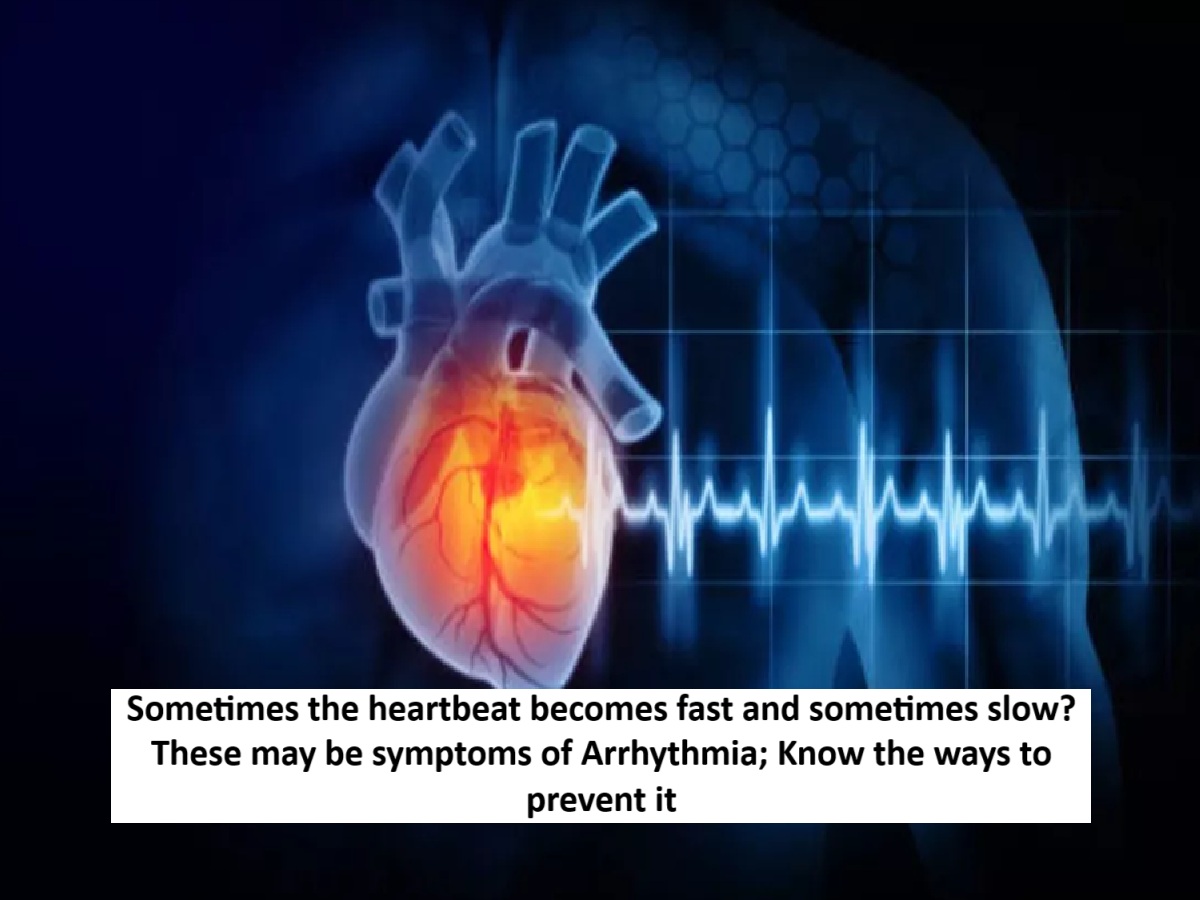
News Topical, Digital Desk : In today's fast-paced life, people are falling prey to many types of diseases. Wrong eating habits and our unhealthy lifestyle are responsible for this. These also include heart diseases. The job of the heart is to deliver blood, oxygen and nutrients to our entire body. But sometimes the heartbeat becomes very fast, very slow or gets disturbed. This is called Arrhythmia.
Usually, there are no specific symptoms when this problem occurs. But some people may have problems like chest anxiety, dizziness, fatigue or fainting. Some arrhythmias are minor and do not require treatment, but some can be serious. This increases the risk of heart-related problems.
In such a situation, it is very important to know the symptoms, causes and prevention methods of this disease. Our article today is also on this topic. We are going to give you complete information about Arrhythmia in this article. Let's know in detail -
What is Arrhythmia?
According to the Cleveland Clinic, Arrhythmia is also called Dysrhythmia. This is a problem related to the heartbeat, in which sometimes the heartbeat becomes too fast, too slow or irregular. This happens when there is a problem in any part of the heart or in the blood circulation. It is also important for the heart to beat properly because it works to deliver oxygen and essential nutrients through blood to the entire body.
How serious can this problem be?
Some Arrhythmias are normal and do not require any treatment. Whereas in some cases, they can also cause cardiac arrest . Generally, they are of three types -
- Supraventricular Arrhythmias: These start in the upper part of the heart.
- Ventricular arrhythmias: These begin in the ventricles of the heart.
- Bradyarrhythmias and junctional rhythms: These problems occur when there is a disturbance in the electrical signal system in the heart.
what are its symptoms
- Sudden increase in heart rate
- disturbance in the heartbeat
- Dizziness or lightheadedness
- fainting
- breathlessness
- Chest pain or feeling of heaviness
- feeling tired or weak
Know the reasons for this too
- Blockage in the arteries of the heart
- inflammation or damage to heart tissues
- High blood pressure
- changes in the heart muscle
- heart valve problem
- Imbalance of electrolytes in the body
Who is at greater risk?
- cigarette and alcohol smokers
- Those who drink too much tea, coffee, cold drinks
- Taking cold and flu medicines or herbal supplements
- High blood pressure
- obesity
- Patients with diabetes or high blood sugar
- on lack of sleep
How to prevent this?
- Give up cigarettes
- Reduce your alcohol intake
- Limit your caffeine intake
- Do not take any medicine or herbal supplement without consulting a doctor
- Keep blood pressure and blood sugar under control
- Maintain your weight
- Get treatment for sleep apnea
- Do light exercise daily
- Limit your intake of salt and sugar
- Don’t take stress
- have a good sleep
--Advertisement--

 Share
Share



